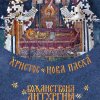Dimitrije Djordjevic, Professor of History, Emeritus, at the University of California, Santa Barbara, member of the Serbian Academy of Sciences and Arts in Belgrade, died in Santa Barbara on March 5, 2009, one week after his 87th birthday.
Professor Djordjevic was one of the leading historians of Serbia and the Balkans in the 19th and early 20th century, a man of vast knowledge, held in great esteem in national and international scholarly circles. He was a founding member of the North American Society for Serbian Studies and its former President.
.Born in Belgrade, descendant of a prominent and wealthy Serbian family, Mita—as his friends called him—did not have an easy life during his adulthood, especially during and after the Second World War. As a member of Draža Mihailović's Četniks, he was arrested by the Germans and sent to Banjica prison and later on to the concentration camp Matthausen in Germany. When the Communists came to power, in the fall of 1945 he was again arrested, sentenced to a year in jail in Zabela and Sremska Mitrovica, and denied his civil rights.
Nevertheless, the vicissitudes of his life neither broke his spirit nor influenced his scholarly work. He always approached historical events, personalities and processes with an open mind and broad tolerance for a variety of views. However, he never compromised the integrity of his own views or subordinated them to the opinions of others. His approach to Serbian and Balkan history was based on his firm belief in the potential of Serbian people and in the need for a western orientation of Serbian politics.
It is not by chance that already his first book on the conference of the ambassadors in London in 1912 and on Serbia's emergence on the Adriatic Sea (Izlazak Srbije na Jadransko More i konferencija ambasadora u Londonu 1912), published by the author in Belgrade in 1956, attracted the attention of historians in Serbia and abroad. After this first success, Mita continued working with great energy and perseverance and produced a series of outstanding books and edited or co-authored a number of others. All his books and articles show a deep knowledge of his field, his intellectual honesty and his sharp, inquisitive mind.
It is not surprising that Dimitrije Djordjevic in a very short time became a well-known and respected scholar, whose work increasingly influenced domestic and foreign historians of modern Serbia and of the Balkans.
One of great contributions that Mita made to history of his native land and its region was the fact that—as a highly regarded scholar—he obtained very early access to international scholarly publications and was invited to numerous international scholarly meetings and conferences, where his erudition, eloquence and friendly demeanor substantially helped to create and to broaden the interest for Serbian and Balkan history.
Of particular importance was his decision, in 1970, to accept the invitation of the University of California, Santa Barbara, and to take the chair of Balkan history in that prestigious institution.
During thirty years of activity in that respected university, he directed a number of Ph.D.s in the field of Serbian and Balkan history and thus enlarged the interest for his area of expertise among younger American and international scholars. At the same time, he helped the scholarly work of young people in Serbia itself. His natural kindness and unpretentious behavior established him very quickly as a friend of students, many of whom became his devoted followers.
Dimitrije Djordjevic was a distinguished scholar, and a beloved teacher, but above all he was an extraordinary human being and a gentleman in the best sense of that word. His goodness, his warm personality, his wise words and his kindness will be sorely missed by all his friends and colleagues.
May he rest in peace!
Ružica Popovitch-Krekić, "In Memoriam", Serbian Studies: Journal of the North American Society for Serbian Studies 21.1 (2007): 147-148.
Photo: Santa Barbara Independent






